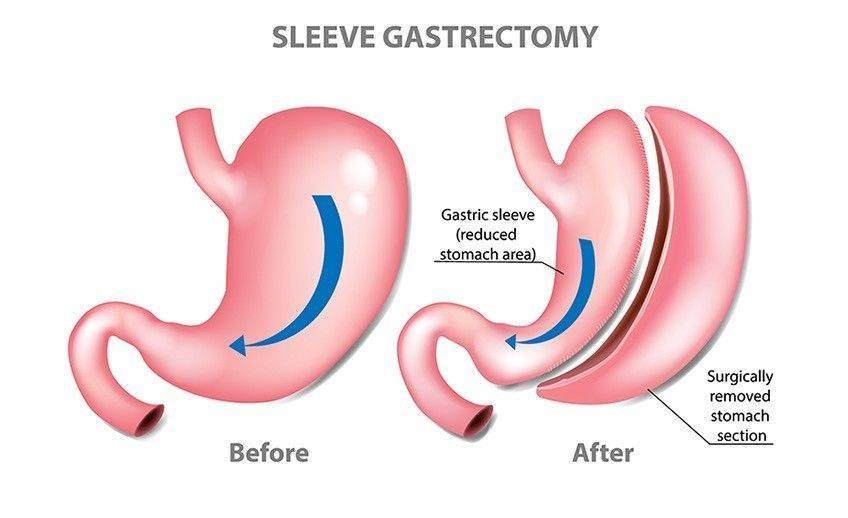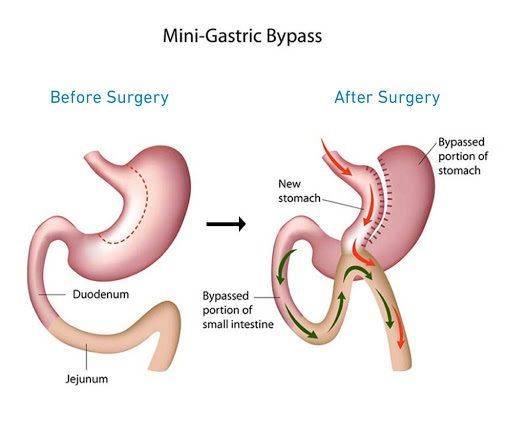- 079041 39064 Call Us Now
- gastrosamrat@gmail.com Email Us
- Home
- About
- Colorectal Surgery
- Laparoscopy
- GI Cancer Surgery
- Case Study
- Patients Corner
- Blogs
- Contact Us
Bariatric Surgery

Bariatric Surgery in Pune
Dr. Samrat Jankar, one of the experienced gastroenterologists in Pune, is the most sought-after surgeon for bariatric surgery. He has 15+ years of experience and has successfully handled several complicated cases.
Being a laparoscopic surgeon in Pune, India, he specializes in Laparoscopic Sleeve Gastrectomy, Laparoscopic Roux-en-Y Gastric Bypass, and Laparoscopic Mini Gastric Bypass.
Moreover, Dr. Samrat Jankar is renowned for providing safe and result-oriented bariatric surgery in Pune, India. He has immense expertise in several other procedures like colorectal surgery, HPB surgery, hernia repair, and gallbladder stone surgery.
These abilities make him one of the best surgical gastroenterologists in Pune, Maharashtra. To learn about bariatric surgery, continue reading this informative article.
First, let’s know,
What Is Bariatric Surgery?
Bariatric surgery is a procedure performed on the stomach or intestines to help obese people lose weight. This surgery, also known as gastric bypass, is a renowned weight-loss operation.
Here, the surgeon changes your digestive system by restricting the amount of food your stomach can hold. So, the patient can eat or drink in smaller quantities, resulting in weight loss.
Bariatric procedures result in weight loss either by reducing the quantity of food held by the stomach or by combining both gastric restriction and malabsorption of nutrients.
Now, let’s know,
When should you consider Bariatric surgery?
- You are extremely obese.
- Your body mass index (BMI) is 40 or more.
- Your BMI is above 35.
- You also suffer from one or more weight-related health issues such as:
- Type 2 diabetes
- Osteoarthritis
- Heart diseases
- Non-alcoholic fatty liver diseas
- Hypertension
- Gastrointestinal disorders
- Lipid abnormalities
- Severe sleep apnea
Understand your BMI results:
Use the chart below to see what category your BMI falls into and whether you need to be concerned about your weight. If you want more information about BMI you can consult the best bariatric surgeon in Pune Dr. Samrat Jankar
BMI CATEGORY
- Below 18.5 – Underweight
- 18.5 – 24.9 – Healthy
- 25.0 – 29.9 – Overweight
- 30.0 – 39.9 – Obese
- Over 40 – Morbidly obese
Your Mental Status
Your Zeal and Motivation
Your Age
Different Types of Bariatric Surgeries
(i) Laparoscopic Sleeve Gastrectomy
The surgeon will remove around 75% of your stomach during this procedure, leaving a tube-shaped stomach. This procedure takes about 1 to 2 hours to complete.
By limiting the size of your stomach, you are prevented from consuming more food, and also it brings about hormonal changes that help you lose weight. Patients are mostly discharged within 1 to 3 days after the surgery. You can return to your everyday activities within a week, but it will take 2 to 3 weeks for the incision to heal.

(ii) Laparoscopic Roux-en-Y Gastric Bypass
The surgeon will divide the stomach into large and small portions in this procedure. The smaller section is stapled or sewn to make a small pouch. Then the surgeon will directly connect the pouch to the small intestine.
By doing so, the swallowed food goes to the small pouch and then directly into the small intestine. It bypasses the larger portion of the stomach and the first section of your small intestine. After Laparoscopic Roux-en-Y Gastric Bypass surgery, you will be in the hospital for around 2 to 3 days and return to normal activities within 2 to 3 weeks.

(iii) Laparoscopic Mini Gastric Bypass
The Mini Gastric Bypass is a short, simple, and reversible laparoscopic surgery that combines gastric sleeve and gastric bypass surgery properties. In this procedure, the stomach is divided by the laparoscopic stapler to reduce its size to hold less food.
Then the surgeon bypasses around 2 to 7 feet of the intestine and attaches the new stomach to the remaining intestine. This surgery offers a shorter operating time and minor re-routing of the intestine. Depending on your overall health, you will have to stay around 1 to 2 days in the hospital. The recovery period is mainly similar to gastric bypass surgery.
Let’s discuss about,

(iv) Robotic Surgery:
Dr. Samrat Jankar, a highly skilled Surgical Gastroenterologist, specializes in advanced robotic GI surgeries using the state-of-the-art Da Vinci Robotic Surgical System. This innovative approach enhances precision, reduces recovery time, and minimizes postoperative discomfort. Patients benefit from smaller incisions and less scarring, leading to quicker returns to daily activities.

Pre-operative Guidelines

These guidelines are prescribed months or weeks before the surgery, depending upon your overall health conditions. You are likely to
- Restrict your food and drink intake
- Seek lifestyle counselling
- Quit tobacco and alcohol
- Undertake an exercise program or physical activity under the supervision
Dr. Jankar may even suggest you lose some weight before bariatric surgery.
What to expect after bariatric surgery?
Yes, this is a vital topic to which you must pay extra attention.
Post-bariatric surgery guidelines have to be followed dedicatedly, especially for the first couple of months before you can consume normal foods. Remember
- Your stomach requires healing
- Your food intake should match the size of your reduced stomach
- The stomach should be able to digest the food comfortably
- Avoid complications or side effects arising out of surgery
- Concentrate on weight loss and avoid weight gain
Initial Dietary Suggestions After Bariatric Surgery

1st – 2nd day – Consumption of clear liquids .
3rd day onwards – consumption of broth, juice, decaffeinated tea or coffee, skim milk, etc.
From 2nd week after surgery
Consumption of pureed food with absolutely no solids.
The foods should be pureed, mashed, and strained.
Each meal should be approx. 4 – 6 tablespoons
You can have up to 3 – 6 meals per day
It would help if you chew the food very slowly – it is okay to take 30 minutes per meal.
After a few weeks, you will be allowed to have –
Soft foods – eggs, cooked cereal, rice, fruit without skin or seeds, vegetables without skin, flaked fish, 3 -5 meals per day, 1/3 – ½ cup portion of food per meal
General Diet Instructions to be followed always
- Liquids should be consumed between meals, not with meals
- Keep a gap of 30 minutes before consuming liquids or meals
- Chew well and eat slowly
- Drink slowly as well
- Choose healthy and natural foods that are less sweet and less fattening
- Limit your caffeine intake
- Have supplements regularly
Let’s take a look at the,
Benefits of Bariatric Surgery
- Reduces the risk of cancer-According to research, obesity increases the chances of developing cancer by almost 50%. Women are at greater risk even if they are 10 kg overweight.
- Helps in reliving obesity-related illnesses like Type 2 diabetes, hypertension, cholesterol aberrations, etc
- Leads to the improvement in the outcome of infertility procedures in both men and women.
- Reduces the risk of complications during pregnancy.
- Enhances the secretion of gut hormones that lessen appetite and restrict the amount of food consumption.
- Offers significant long-term weight loss around 60% to 80% excess weight loss.
- Gives longer and confident life-Obesity can cause low self-esteem and decrease the quality of life. Bariatric surgery reduces weight and provides a healthier lifestyle.
If you face any gastrointestinal or obesity disorders, feel free to call or seek a consultation from our clinic. Dr Samrat Jankar will provide you with suitable treatment with complete care.
Why Choose Us?
- Dr. Samrat Jankar is a gastroenterologist and gastrointestinal surgeon in Pune who is highly qualified and competent.
- During his training at the famous GEM Hospital and Research Center in Coimbatore, Tamil Nadu, he gained considerable expertise and experience in various gastrointestinal procedures.
- Dr. Jankar is an expert in advanced laparoscopic surgery, GI cancer surgery, bariatric surgery, and abdominal wall reconstruction. He specializes in investigating and treating all gastrointestinal problems.
- Moreover, he is a skilled gastroenterologist in Pune, specializing in upper GI endoscopies and colonoscopies.
- He has garnered extensive experience and expertise in managing hundreds of challenging situations with excellent outcomes throughout his career.
Watch Our Videos:
FREQUENTLY ASKED QUESTIONS
There will be pain, whether you have gastric bypass, gastric sleeve, or Lap-Band surgery. It would be good to report that gastric bypass surgery causes an eight on a scale of 10 discomforts. On a pain rating of one to ten, gastric sleeve surgery is a seven out of ten, whereas lap-band surgery is a five out of ten.
At room temperature, only drink clear drinks. To avoid discomfort, limit your intake to modest amounts. Mild liquids, such as milk, broth, and yogurt, should be included in your diet.
Before undergoing bariatric surgery, some individuals must reduce 10% of their body weight. Other patients find that losing 15 to 20 pounds before surgery is sufficient to reduce the risk of complications.
Relevant Questions
Q. If i want to reduce weight, then what all options do i have, surgically or otherwise?
Each weight loss surgery option presents unique risks and benefits, so it’s important to compare them. There are many surgical options out there, like Bariatric surgery, gastric bypass surgery, Sleeve gastrectomy etc. For further details,
Q. Can i know about bariatric surgery and the criteria on meeting which i will qualify for this surgery?
To be eligible for bariatric surgery, you must meet the following requirements:
Have a body mass index (BMI) of 40 or higher, or have a BMI between 35 and 40.
Q. What are the symptoms of colon cancer?
Colon cancer is also known as colorectal cancer, a term that combines colon cancer with rectal cancer, which starts in the rectum. The following are some of the signs and symptoms of colon cancer:
Q. What are the symptoms of Gastroesophageal reflux disease (GERD)?
Avoid straining at stool and urine, maintain good health, avoid heavy weight lifting.
Q. My grandfather was diagnosed with GERD, how can he be treated?
GERD is a digestive disorder that affects the ring of muscle between your oesophagus & your stomach. This can usually be controlled with medication. If you wish to avoid long-term medication then we recommend: Fundoplication. Plan
Book an Appointment
Enter details, our team would approach you to help you as soon as possible.
PEOPLE SPEAK ABOUT US
VInayak Rengan
One of the finest laparoscopic colorectal surgeons I have ever known. He is also a fantastic teacher. For colon and rectal cancer, I don’t think patients need to look elsewhere else.
Vaidehi
Effective medication for stomach related issues that I faced, informative about the cause of the issue, and a kind doctor who also followed Up about my health! Thank you doctor Samrat 🙏
Pritesh Patade
For gastrointestinal problems, this clinic is highly recommended. You will receive the appropriate treatment at the appropriate time. Laboratories are maintained by highly qualified people and are well-developed. The doctor will patiently listen to all of your queries and respond in a technical and kind manner. When you’re under his guidance, you’ll never feel alone.
Ashish Muley
Dr Samrat is a well-experienced Gastroenterologist in Pune. He is a very polite and genuine person. He treats and diagnoses properly. I would highly recommend visiting him if facing reflex GERD and acidity problems. He is 24/7 available for consulting his patients. He is one of the best doctors I have come across.
Sushil Tiwari
Best doctor in town. He is extremely caring towards his patients and genuinely cares for their health and well-being.
